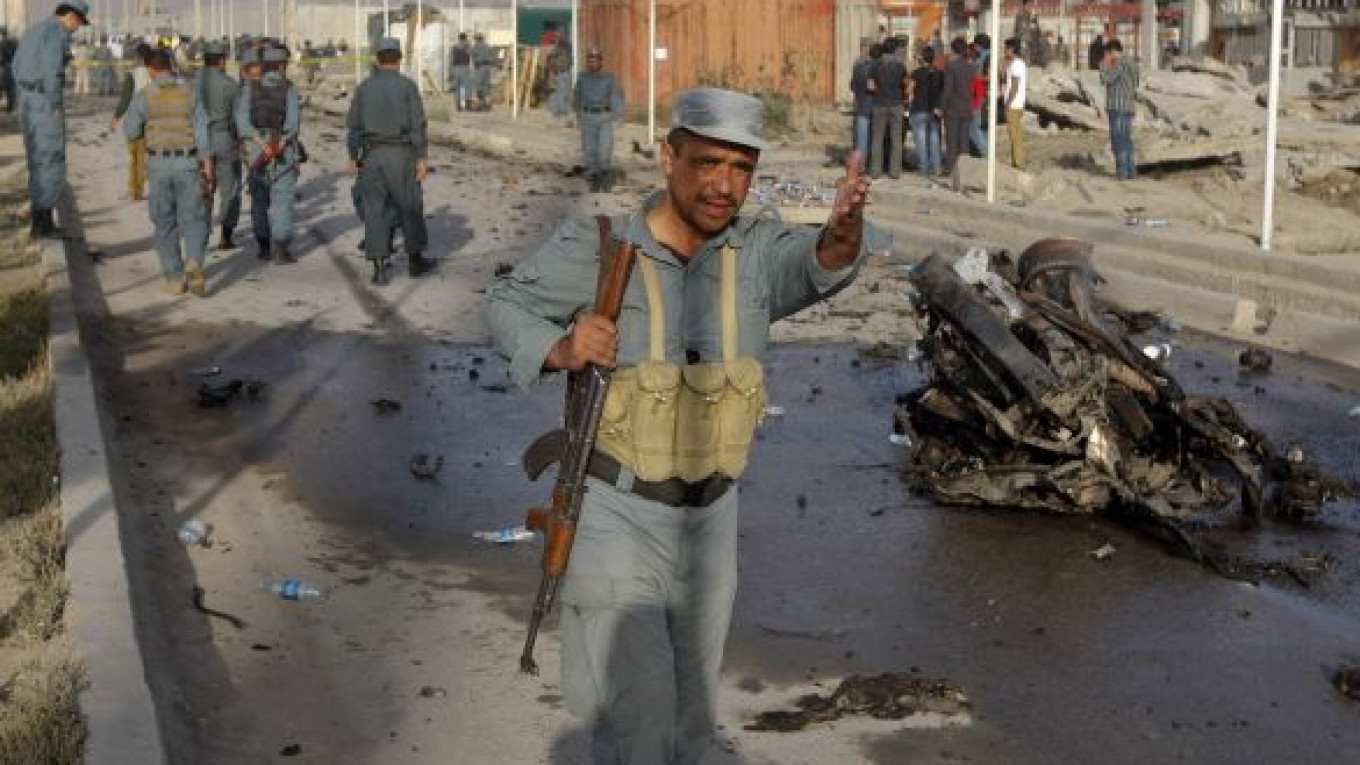Russian Internet users could face a YouTube blackout if a video clip responsible for ongoing protests across the Muslim world is declared extremist by authorities, a top government official warned Tuesday.
"Jokes aside, but because of this clip, access to YouTube could be completely blocked as of Nov. 3 to 5 on the territory of the Russian Federation," Press and Communications Minister Nikolai Nikiforov wrote on Twitter.
Nikiforov's comments come after the low-budget movie trailer "Innocence of Muslims," which mocks Islam and portrays the Prophet Muhammad as a greedy womanizer, prompted a wave of violent demonstrations in countries from the Middle East to North Africa and Europe.
In the latest episode of violence, on Tuesday an Afghan insurgent group launched a suicide attack near Kabul Airport that killed 12 people, mostly Russian and South African pilots working for a courier company, saying the attack was launched in retaliation for the film, media reports said.
Russian authorities could now respond by placing YouTube on a list of banned sites once a new law restricting access to content deemed extremist enters force Nov. 1, Nikiforov said.
Google, the Internet search giant that controls video-hosting site YouTube, has refused to delete the 14-minute clip from its servers, despite requests from the U.S. White House.
But the company has said it will block access to the video in specific countries if local authorities or courts demand it.
So far, YouTube has blocked the clip in India, Indonesia, Egypt and Libya in line with local legislation but refused to do so in Pakistan, Interfax reported.
Russian authorities have not yet demanded site administrators ban the clip seen as blasphemous among Muslim believers but have made efforts to restrict its circulation.
On Monday, the Prosecutor General's Office ruled the clip should be classified as extremist after Federation Council Senator Ruslan Gattarov requested an investigation into the clip's content.
Marina Gridneva, the official spokeswoman for the prosecutor's office, told RIA-Novosti that prosecutors were now seeking to ban to the film via the courts.
Related articles:
A Message from The Moscow Times:
Dear readers,
We are facing unprecedented challenges. Russia's Prosecutor General's Office has designated The Moscow Times as an "undesirable" organization, criminalizing our work and putting our staff at risk of prosecution. This follows our earlier unjust labeling as a "foreign agent."
These actions are direct attempts to silence independent journalism in Russia. The authorities claim our work "discredits the decisions of the Russian leadership." We see things differently: we strive to provide accurate, unbiased reporting on Russia.
We, the journalists of The Moscow Times, refuse to be silenced. But to continue our work, we need your help.
Your support, no matter how small, makes a world of difference. If you can, please support us monthly starting from just $2. It's quick to set up, and every contribution makes a significant impact.
By supporting The Moscow Times, you're defending open, independent journalism in the face of repression. Thank you for standing with us.
Remind me later.


